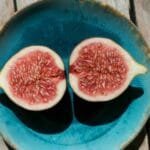Ashu’s Curiosity
For the last week, Ashu had been suffering from digestion problems such as bloating, indigestion and constipation.
Her mother has tried many different home remedies but in vain. She has even taken Ashu to the physician and he prescribed some medicines.
However, one of their neighbours had advised her to give Ashu Munakka an empty stomach in the morning.
After some days, she observed some improvement in Ashu’s condition. But this has developed some curiosity about the Munakka, as he had never heard about it earlier. He also observed some similarities between Munakka and Kishmish.
So, now he wants to get information about the health benefits of munakka, its uses, recipes and side effects and how Munakka is different from Kishmish:
What is Munakka?
Munakka is part of the dry fruits category and it is got from the dried grapes. It has been part of Asian tradition used throughout the Indian subcontinent and the Middle East in preparing delicacies. It is especially preferred for preparing desserts due to its sweet and slightly tangy flavour.
Not only that due to its high nutritional content, Munakka is used in treating minor illnesses or health conditions. Some Ayurvedic medicines to cure digestion, eyesight and skin problems are prepared using munakka as a content.
Read more about Nuts & Seeds
Fun Fact of Munakka
Some of you might be surprised but Munakka is native to India. Its plant is also called the “Tree of Life” because of its regenerative properties.
Munakka Nutrition Content
Here, we will discuss the nutritional content of 100g of Munakka. Due to this it is considered a great food in your balanced diet:
| Nutrients | Quantity |
|---|---|
| Energy (Calories) | 299 kcal |
| Water | 15.5 g |
| Protein | 3.3 g |
| Fats | 0.25 g |
| Carbohydrates | 79.3 g |
| Fiber | 4.5 g |
| Sugar | 65.2 g |
| Iron | 1.79 mg |
| Potassium | 744 mg |
| Calcium | 62 mg |
| Sodium | 26 mg |
Source: www.tataaig.com
Health Benefits of Munakka
Following is the list of 10 health benefits that you can enjoy by adding Munakka to your diet:
Rich in Nutrients
If you want to talk about Nutritional value then you should know that Munakka is rich in various minerals, vitamins and antioxidants. Only a few Munakka in the morning can provide you with different vitamins and minerals like Vitamin A & C, Iron, Calcium, Potassium and Sodium.
Not only that you can consume Munakka for the essential antioxidants that can minimise the risk of having chronic diseases.
Improves Digestion
One of the main reasons, why you should add Munakka in your diet is that it promotes gastrointestinal health. Fiber content in it can help in improving the digestion of food and smooth movement of stool. This prevents constipation and bloating.
Moreover, Munakka is beneficial in reducing the risk of colon cancer by taking care of colon tissues and removing toxins present in the stomach. In traditional medicines, Munakka is also considered a cure for Piles.
Increases Energy levels
Consuming munakka in the morning can help you in boosting energy. It carries natural sugars such as fructose and glucose that can provide you required energy for the whole day.
If you feel lethargy and fatigue in the evening then you can have Munakka as a snack in the evening. Athletes and health enthusiasts prefer having it as a post-workout snack to boost energy.
Promotes Heart Health
If you want to maintain a healthy lifestyle then you should add foods that are helpful in maintaining good heart health. Munakka is a good source of Potassium, a compound that can reduce the tension in blood vessels. It can also keep the sodium in balance in your body.
People suffering from hypertension and high blood pressure should add Munakka to their diet. You can lower your risk of having cardiovascular disease by eating it regularly.
Supports Bone Health
If you are making a list of foods that can help you strengthen bones and maintain bone health. Then you should include Munakka in your list because it is a good source of calcium and boron.
Moreover, eating Munakka in the morning enhances the ability of your bones to absorb calcium. Osteoporosis, a common disease among Indian women can be prevented by regular consumption of it.
Good for Dental Care
A food rich in calcium is not only helpful in bone health but it can also be good for maintaining dental health. Similarly, Munakka is a good option for dental care. Although it is rich in sugar, Munakka can protect your teeth from dental cavities.
Also, it is rich in antioxidants which are necessary to tackle bacterial growth in the mouth and protect teeth from any infection or disease.
Strengthens Immunity
Adding Munakka is also helpful in boosting your immunity. Vitamin C present in Munakka is an essential mineral to strengthen the immune system. You need a strong immunity to shield your body against chronic and minor illnesses.
Studies have claimed that Munakka can lower stress levels which is also great for preventing the occurrence of disease.
Improves Vision
If you have issues with your eyesight then Munakka is a great option for you. Similar to other eye-friendly foods, Munakka also carries Vitamin A and beta-carotene. Both of these nutrients are essential to improving vision.
Antioxidants in it also helpful in preventing eyes from diseases like cataracts, night blindness and other eye-related health problems.
Helps in Detoxification
You can utilise Munakka to detoxify your body. The detoxification properties can help in removing toxins from the organs like the liver. Antioxidants present in it improve the health of kidneys by removing wastes.
Aids in Weight Loss
If you are a person who wants to lose some weight then adding Munakka can help you a lot. Due to its high fiber content, you can feel satiated for a longer period of time by reducing hunger pangs and cravings.
Moreover, regular consumption of Munakka can boost your metabolism and speed up the calorie-burning process of your body. This can support your weight management goals.

5 Simple and Easy-to-Prepare Munakka Recipes
With so many health benefits, you can consume munakka through these 5 simple recipes:
1. Munakka Milkshake
One of the Simple recipes, prepare a Munakka milkshake by just adding 2-3 tablespoons of Munakka in the boiled or cold milk and then blitz it until the flavour of Munakka is dissolved in the milk. You can add some cream as well for the texture.
2. Munakka Papaya Salad
If you are a salad lover and want to take the health benefits of Munakka, then you should give a chance to this salad recipe. You just need to slice a medium-sized papaya with 2-3 tablespoons of overnight-soaked Munakka. Enjoy this salad in the evening as a snack or side dish for lunch and dinner.
3. Munakka Lassi
Every North Indian loves having a glass of lassi post-meal. If you add munakka to this beverage then you can enjoy the benefits of this nutrient-rich dry fruit. To prepare this, you just need 1 cup of Munakka, and wash it properly after removing seeds. Then blend it with ice cubes for 2-3 minutes and then add lassi to the blender. Serve the chill and healthy lassi to your guests.
4. Cinnamon Munakka Oatmeal
Oatmeal is a great morning breakfast meal food that is rich in nutrients and supports your weight management goals. If you put some Munakka in oatmeal, you can make it more nutritious and healthier. Start with combining oats, banana slices, flaxseeds, munakka, cinnamon, salt and water. Stir the mixture and heat it for 8-10 minutes until the liquid has been absorbed.
5. Munakka Kheer
Kheer is a household dessert in India but adding some munakka can make it healthier. To prepare this delicacy, you need to start by adding properly washed rice with coconut milk, sugar & cardamom in a medium-sized pot. Stir it well for 30 minutes on heat until the milk is reduced by half of the quantity. Now add saffron, Munakka and other dry fruits as dressing to make it more nutrient-rich.
Munakka vs Kishmish
Both Munakka and Kishmish are dried grapes and have multiple health benefits but both of them are considered for different utilities. Kishmish is more used as dry fruit and added in desserts and baked foods as topping while munakka is primarily used for making traditional medicines.
Kishmish and Munakka both are rich in fiber and protein due to which they are considered a great cure for digestion-related problems. But on comparing the nutrients, munakka is more nutritious and carries more antioxidants than kishmish.
Side Effects of Munakka
Consuming munakka in moderate quantities is safe for the health but there are certain health risks associated with it as well:
High Sugar Content
Due to high sugar content, overconsumption of munakka can lead to weight gain rather than helping to lose weight. Similarly, people suffering from type-2 diabetes should be cautious while consuming munakka daily.
Digestive Issues
No doubt that eating munakka can aid in digestion. But at the same time, if you overconsume it, munakka can create some digestive problems such as diarrhoea and bloating. This is because of the high fiber content in it.
Allergic Reaction
Although there are rarely any cases of an allergic reaction, consuming munakka in more than moderate quantities can accelerate allergic reactions. If you feel itching, redness and swallowing after eating munakka then you should avoid consuming it.
FAQs Related to Munakka
Q.1 How many munakka to eat in a day?
The number of munakka you should eat depends on various health factors such as age, weight, dietary needs and calorie intake. But in general concession, a person should take at least 5-6 munakka in a day.
Q.2 Is Munakka safe for children and pregnant women?
Yes, both pregnant women and children can eat munakka. Consuming it can boost energy and provide essential nutrients. But if the woman is suffering from type-2 diabetes then they should consult from doctor before consuming it.
Q.3 Is overnight-soaked Munakka good for health?
Yes, overnight soaked munakka not only provides nutrients and health benefits of munakka but it hydrates the body as well. You can soak munakka in both water and milk if you are not lactose intolerant.
Conclusion
Munakka helped Ashu to cure his digestive issues and through Know Your Diet he has got enough knowledge about the health benefits of Munakka, its uses and side effects.
He is now able to distinguish between kishmish and munakka that earlier he considered as same.
Also, he should be cautious about how much he consumes daily as there are some side effects of munakka that are associated with its overconsumption.




